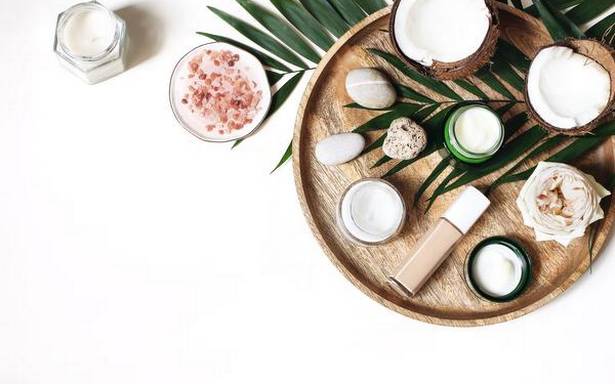Karen Behnke on her farm-first approach to skincare, and why creating formulations for melanin-rich skin is key for the Indian market
Clean Beauty is easily the pandemic’s most visible skincare trend. Ever since its onset, the beauty consumer has become hyper-aware of ingredients, brands and processes. Azelaic acid, retinol, niacinamide, alpha and beta hydroxy acids — once relegated to dermatologist prescriptions, are a part of mainstream product names today.
A recent report from commerce experience platform Nosto states that out of various ethical labels that beauty brands use to describe their products, ‘clean’ drives 68% of online purchases. Not surprising given our obsession with everything sustainable today, but what does the term even mean? Are consumers aware of what goes into their beauty products and can they tell the difference between a chemically-derived ingredient from a natural one?
“Clean beauty isn’t defined,” says Karen Behnke, founder of American brand Juice Beauty, the ‘OG’ of clean beauty. It made its India launch this week with e-commerce beauty retailer Boddess. With Juice Beauty entering the highly competitive sustainable beauty space — that has seen a crop of new launches such as Pulp Beauty, Quench Botanics, Minimalist, and Disguise Cosmetics over the last year — the market is only expanding.
Karen Behnke, Founder, Juice Beauty | Photo Credit: Special Arrangement
Going beyond labels
The brand was founded in 2005 — long before ‘clean’ beauty was even a category for beauty retailers — when Behnke noticed the effect of pregnancy and hormonal changes on her skin. She wanted to create products that performed better than mainstream conventional skincare while ensuring safe and natural ingredients.
Juice Beauty, she says, goes “beyond clean”, by focussing on clinical results that compare with conventional chemical formulations, without compromising on organic ingredients and sustainable operations. Explaining that ‘organic’ isn’t a term that can be used as loosely as say, ‘natural’ she adds it must be certified.
All of Juice Beauty’s ingredients are USDA-certified organic and use food-grade preservatives. Apart from organic ingredients, she adds, “most of the packaging is sustainable glass so it can be recycled. We use recycled plastic for our bottles, our tubes are bio-resin, and our paper is FSC certified”.
Celebrity partnerships
- Juice Beauty has a history of star-studded partnerships. In 2016, the brand signed Gwyneth Paltrow (who was riding high on her success with Goop) as their Creative Director to expand their makeup Line. Earlier this year, they on-boarded actor Kate Bosworth (who launched beauty and lifestyle site KIND.EST in 2019) to be the face of their Stem Cellular Retinol Overnight Serum.
The farm life
Perhaps the most interesting aspect of Juice Beauty’s sustainability mission is their farm-to-beauty initiative where the brand has invested in a farm to grow their own ingredients. “The olives and grapes you’d want in your skincare are very different from what you’d want to eat,” says Behnke, adding, “The farm and our headquarters in California are solar-powered. We are trying our best to achieve the highest grade of sustainability not just inside the bottle, but also outside.”
Made for Indian skin
Much like skin ingredients that differ, skin types are also varied. Indian skin, she says, is “melanin-rich”. The presence of melanin in the skin results in physiological differences which in turn affects the efficacy of conventional skincare. If skincare isn’t formulated keeping melanin-rich skin in mind, it might not have the desired effect, or worse, end up backfiring. “Our products are tested on a wide variety of skin tones,” says Behnke, who recommends the brand’s Green Apple Exfoliant for Indian skin. “Fruit acids and glycolic acids give better exfoliation for melanin-rich Indian skin.”
Juice Beauty is available on boddess.com at ₹2,600 onwards
Source: Read Full Article


